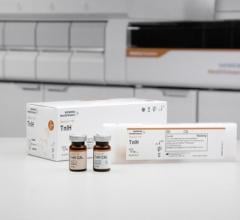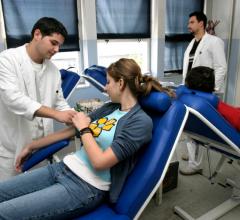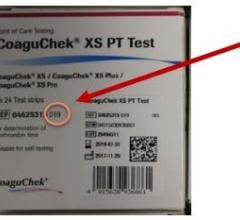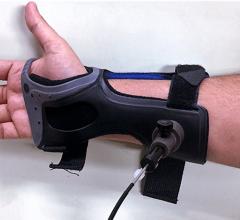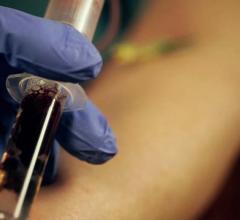September 9, 2008 - Celera Corp. and its collaborators at Brigham and Women’s Hospital today said a paper published in Atherosclerosis Journal reports a variant of the LPA gene is associated with a two-fold higher risk of major cardiovascular events (myocardial infarction, ischemic stroke and cardiovascular death).
Prior studies from Celera and other collaborators also reported the association of this gene variant and cardiovascular risk. The newly published study confirmed the increased risk associated with this LPA variant and showed the excess risk was eliminated by taking low dose aspirin. The paper is currently available on the journal’s Web site at http://atherosclerosis-journal.com/inpress.
These findings were based on analysis of 25,131 participants in the Women’s Health Study (WHS), a randomized trial of aspirin and placebo in the primary prevention of cardiovascular disease conducted among initially healthy women aged at least 45 at enrollment, who were followed over a 10 year period for major cardiovascular events. Approximately 4% of the participants in the WHS were carriers of the LPA gene variant. In the placebo arm of this study, these carriers had a more than two-fold increased risk of major cardiovascular events compared with noncarriers. In the group taking low dose aspirin, there was no difference in the risk of major cardiovascular events between carriers and non-carriers of the LPA gene variant, suggesting that women who are carriers of the risk variant of the LPA gene can mitigate their excess risk for cardiovascular disease by taking low dose aspirin.
The benefit of aspirin therapy among carriers of the gene variant could be observed soon after the start of the study, was consistent throughout the study, and increased over time. The reduction of risk for major cardiovascular events among carriers would have resulted in a number-needed-to-treat (NNT) to prevent one major cardiovascular event of 37 for carriers compared with 625 for non-carriers, with no difference in the rate of major bleeding events.
The increased risk of cardiovascular events observed in LPA carriers and its reduction by aspirin therapy was independent of other well known CHD risk factors including hypertension, LDL-cholesterol, HDL-cholesterol, and age, which further supports the conclusion that a LPA gene variant is a new, independent predictor of risk for CHD and clinical benefit from aspirin therapy. LPA encodes apolipoprotein(a) a protein component of Lp(a) plasma lipoprotein particles and the gene variant results in an amino acid substitution (methionine for isoleucine) in the protease-like domain of apolipoprotein(a). Carriers of the LPA gene variant also had higher plasma Lp(a) levels.
"This study indicates that carriers of the LPA gene variant are both at higher risk of cardiovascular disease and that this risk is reduced by aspirin therapy,” said Daniel Chasman, Ph.D., assistant professor of Medicine at Brigham and Women’s Hospital and Harvard Medical, Boston, MA, and the lead author of the paper. “The publication of these data should motivate further studies that explore the biological role of LPA in the development of cardiac events.”
“If found to be a consistent effect in other patient populations, these data could provide a genetic method for defining subpopulations with differential benefit from aspirin therapy, an issue pertinent to the controversial choice of aspirin or aspirin alternatives in the prevention and treatment of vascular disease,” added Professor Paul Ridker, M.D., director of the Center for Cardiovascular Disease Prevention, Division of Cardiology at Brigham and Women’s Hospital and Harvard Medical School, Boston, MA the senior author of the paper.
Berkeley HeartLab, a subsidiary of Celera, is expected to offer a laboratory-developed test for the LPA gene variant. Celera plans to pursue regulatory registration for a diagnostic product based on this research and other findings.
For more information: www.celera.com


 October 09, 2019
October 09, 2019 
